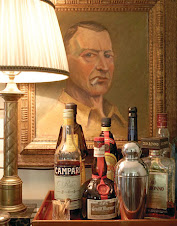
By: Frances D'Emilio, Associated Press Writer
ROME (AP).- Italian tax police said Saturday that they had seized works by Van Gogh, Picasso, Cezanne and other giants of art in a crackdown on assets hidden by the disgraced founder of the collapsed dairy company Parmalat.
Authorities estimated the 19 masterpieces stashed away in attics and basements were valued at some euro100 million ($150 million).
Parma Prosecutor Gerardo Laguardia said that, based on wiretapped phone conversations, officials believed at least one of the paintings hidden by Calisto Tanzi was about to be sold.
"We got lucky. We learned that there were negotiations under way to sell one of the paintings" and raid three apartments in the area of Parma, near Parmalat's headquarters, Laguardia said in an interview on Italy's Sky TG24 TV. He didn't identify the painting.
Bologna-based tax Police Col. Piero Iovino told The Associated Press by telephone that investigators believed the entire batch of paintings, watercolors and drawings were up to be sold. The prospective buyer was a Russian, possibly living in Italy, Iovino said.
No arrests were announced as part of the art seizure.
Tax police said Parma prosecutors are opening a probe into alleged concealing of assets in Parmalat's bankruptcy case.
Parmalat, the dairy conglomerate known for its long shelf-life milk grew from a small dairy distributor in Parma, into a diversified, multinational food company by 1990, but collapsed in 2003 under euro14 billion in debt — eight times what it had previously acknowledged — in what remains Europe's largest corporate bankruptcy. Many small investors who lost their life savings were among some 40,000 defrauded bondholders.
Italian courts have already ruled that Tanzi bore the brunt of responsibility for the collapse. Tanzi was convicted by a Milan court last year of market-rigging and other charges in one of multiple probes. He is currently on trial for alleged fraudulent bankruptcy.
Tanzi has blamed the banks for the labyrinth of deals that helped swell the company to a global empire with operations in more than 30 countries, but also led to the company's collapse.
For years after the collapse, Tanzi was rumored to have had a "hidden treasure" somewhere. On Nov. 29, a state TV show alleged that Tanzi had hidden a collection of artwork to try to shelter himself from the effects of looming collapse of Parmalat.
"I don't have any secret cache" of paintings, Tanzi told reporters the next day on the sidelines of his current trial in Parma, repeating his ongoing dismissal of reports that he had a so-called "little treasure" of assets squirreled away.
A lawyer who represents Tanzi and serves as his spokesman didn't answer his cell phone Saturday.
Police showed some of the paintings to journalists near Parmalat's headquarters Saturday.
After the TV show, "we tightened the screws" and zeroed in on Tanzi son-in-law Stefano Strini, Iovino said. "He told us that the paintings were Tanzi's" and led police to the apartments, he said.
As the corporate failure loomed, Tanzi moved to safeguard his wealth by hiding "property whose value endures through time," Iovino said.
Among the masterpieces was a pencil on paper portrait of a ballerina by Degas, two Van Goghs, including a depiction of a trunk of a willow tree and a still life, a watercolor by Cezanne and a pencil-work by Modigliani.
Tax police official Massimo said some of the paintings were carefully wrapped for protection, but that other paintings, including a Picasso, were left open in the store room
Adaptive reuse: Chateau of the Hertford British Hospital
-
Buildings with specific uses often find themselves out of a job so to
speak. Rather than tear down (often wonderful) old buildings, rehabbing
them is the...
4 months ago

















3 comments:
Crime does not pay- when you get caught. Art crimes are the worst, practically. la
You've got a wonderful blog. This is my first time visiting it. I like it a lot.
Unbelievable the extent that criminals will go to. The art is really priceless to the world!
Post a Comment